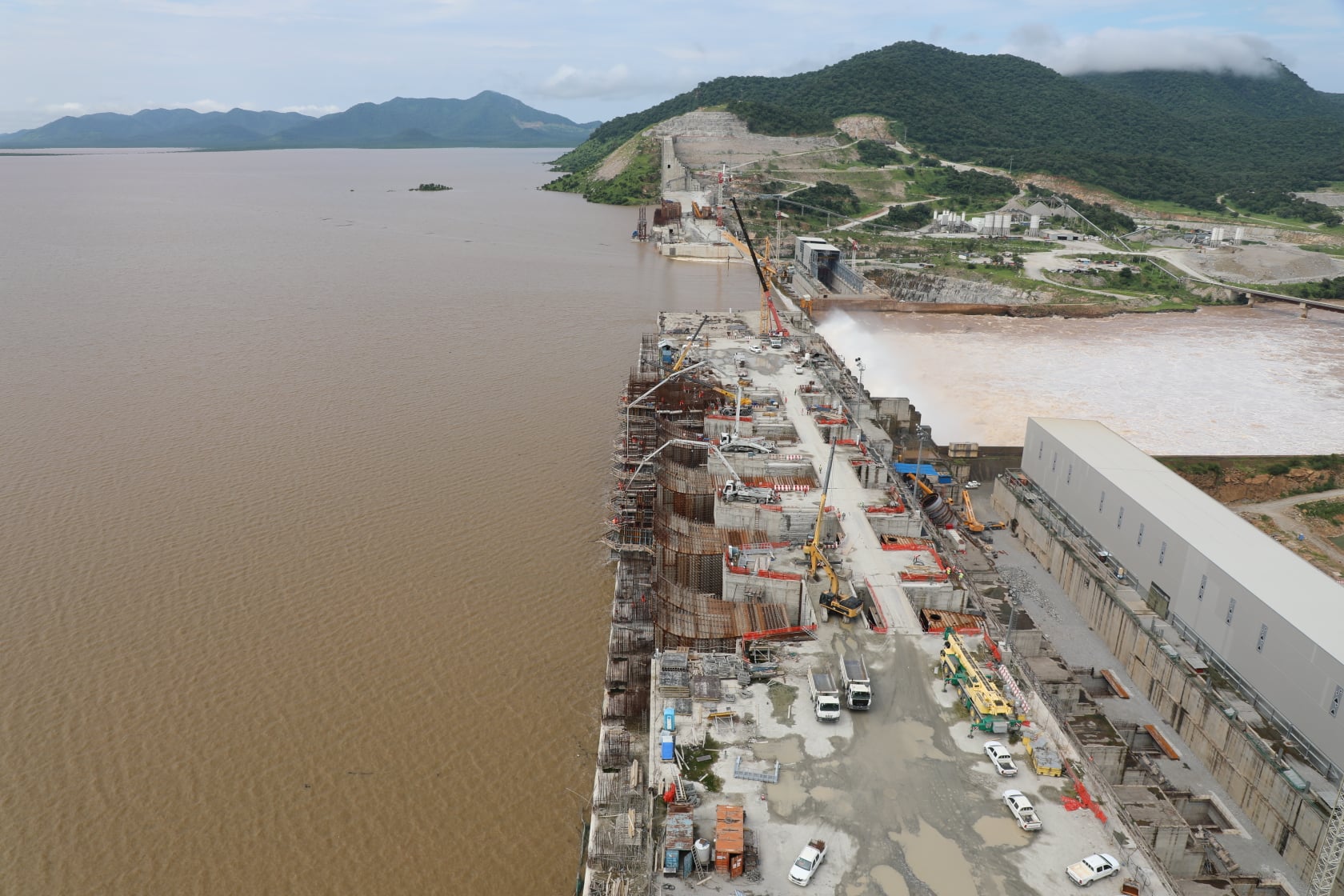GERD will Liberate Sudan from 1959 Colonial Era Treaty that Favors Egypt: Diplomacy Expert - ENA English
GERD will Liberate Sudan from 1959 Colonial Era Treaty that Favors Egypt: Diplomacy Expert

Addis Ababa July 8/2021 (ENA) The Grand Ethiopian Renaissance Dam (GERD) will liberate Sudan from the 1959 colonial era treaty that favored Egypt over Sudan, Ethiopian Institute for Public Diplomacy President Yasin Ahmed said.
The 1959 treaty allocated the bulk of the Nile’s waters to Egypt, 55.5 billion cubic meters (BCM) or 66% of the river's total 84 BCM water flow while 18.5 BCM (22%) was allocated to Sudan, and the rest 10 BCM (12%) was left for evaporation.
The treaty did not recognize the rights of upstream countries, including Ethiopia whose territory contributes more than 85% of the Nile.
In an exclusive interview with ENA, the president said the GERD project has many benefits for Sudan because it protects it from flood, reduces silt rate in dams, regulates the flow of water in Nile River and increase agricultural productivity of Sudan as confirmed by experts of Sudan.
Above all, the dam will liberate Sudan from the 1959 colonial era treaty that provides rights to Egypt to have lion's share water of the Nile River and serves the interest of Egypt before Sudan, he revealed.
Yasin underscored that Sudan must ratify the Nile Basin Initiative Cooperative Framework Agreement that will free Sudan from the 1959 colonial treaty and benefit from River Nile.
According to him, opposition to the second filling of the Grand Ethiopian Renaissance Dam means adherence of Sudan to the colonial era treaty that deprives the rights of the country for fair share of water.
The civilian government in Sudan understands the importance of GERD to Sudan, while the military objects to the Renaissance Dam for various political reasons, the president explained.
Sudan’s position was supportive of its interests at the beginning of the negotiation. However, it has changed its stance closer to Egypt after Egyptian political pressure, Yasin further stated.
The director stressed that GERD is of paramount importance to Sudan, compared to the Egyptian Aswan Dam whose negative effects on Sudan were greater as it forced more than 200,000 Nubians to migrate and drown and destroy the Nubian civilization.
Aswan Dam was a tragedy for Sudan, unlike the Grand Ethiopian Renaissance Dam, which will provide electricity, prevents floods and offers other many more benefits to Sudan, he elaborated.
The president insists that the second filling of the GERD is in line with international law that Ethiopia has notified Egypt and Sudan about the filling process, and goes in line with the construction process of the dam, which is stipulated in the 2015 Declaration of Principles signed between the three countries.
With regard to the impact of the process of filling of the GERD, Egypt is misinforming the world without justification that the filling process would reduce the amount of water the country receives in order to force Ethiopia sign a binding agreement, a kind of agreement recognizing the colonial agreements.
He said member states of the UN Security Council also believe that the issue of GERD should be under the auspices of the African Union, which is the body that can play an effective role in resolving the issue of the dam.
According to Yasin, the accusation of Egypt and Sudan that GERD threatens security and peace in the region and raising this issue at the United Nations Security Council is a futile course as the dam is a development project and the Council has no authority in the issue of water development projects.
Egypt and Sudan are also trying to Arabize the Renaissance Dam issue by presenting it to the Arab League, ignoring the role of African Union, he noted, adding that Egypt must respect the African Union because the Union is a large institution comprising 54 countries, and the League of Arab States cannot pressure Ethiopia but provide moral political support for Egypt and Sudan. It should not go beyond that.
The president made it clear that despite all the differences between the three countries, GERD cannot be a cause of a war between the three countries.
Egypt and Sudan do not have a legal right that gives legitimacy to the use of military force to strike a civilian facility on allegations that it will thirst the two countries, Yasin argued.
He suggested that the best solution is negotiation that guarantees and achieves the interests of all the Nile Basin countries, which pushes them towards prosperity and development for the peoples in the region as a whole.